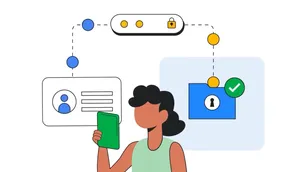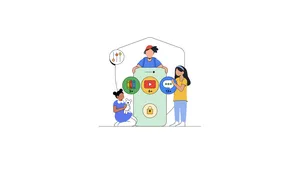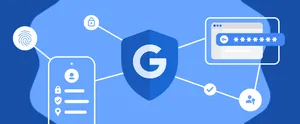Passkeys are now available for high risk users to enroll in the Advanced Protection Program

Advanced Protection Program (APP) is our strongest level of Google Account security and provides extra safeguards against common attacks like phishing, malware and fraudulent access to data. We developed APP for people at high risk of cyber attacks, like journalists, elected officials, political campaign staff and human rights workers.
Today, we’re making it even easier for high risk users to enroll and use the program by making passkeys available in APP. Users traditionally needed a physical security key for APP — now they can choose a passkey to secure their account.

What is a passkey?
Passkeys are an easier and more secure alternative to passwords — in fact they’re 50% faster to use at sign in. Passkeys are based on FIDO Authentication, making them phishing resistant so users are protected against things like fraudulent emails, and they are easy to use since they only rely on a fingerprint, face scan or pin. Last year, we began rolling out passkeys, automatically helping people improve their account security. With passkeys, users have:
- Choice: Passkeys can be created on your personal devices like phones and laptops, as well as most modern physical security keys. They are designed to be used without a password by default, but can also be set up for use after a password, if preferred.
- Convenience: Passkeys are more convenient than traditional passwords since you don't have to remember them or type them in every time you sign in.
- Security: Passkeys are more secure than traditional passwords, and legacy forms of multi factor authentication, because they are tied to your device and not stored on servers or susceptible to phishing attacks.
How do passkeys help with APP?
Traditionally, users were required to have two physical security keys to enroll in APP, using their password and one of the security keys to log in. However, we understand that users might not always have access to physical security keys or the ability to buy one. For example, this could be difficult for a journalist covering a war zone, a traveling campaign worker, or a business leader taking a last-minute trip. Passkeys give high risk users the option to rely on the ease and security that come with using personal devices they already own, as opposed to another device or tool like a security key, for phishing resistant authentication. You can find more information on how passkeys work with security keys on our Security blog.
How do I enroll in APP using a passkey?
Users will first need to make sure that they have a compatible device and browser. Once they’ve confirmed compatibility, they can follow these steps to enroll in APP using a passkey:
- Visit the Advanced Protection Program enrollment page
- Click on “Get started”
- Follow the on-screen instructions to complete the enrollment process. You can choose to enroll with a passkey or with a physical security key
We also require you to add recovery options during enrollment (e.g. a phone number and email, or another passkey or security key), a combination of which will help you regain access to your account if you get locked out.
New partnerships to protect high risk individuals around the world
Today, we’re excited to launch a new partnership with Internews to provide journalists and human rights workers with safety and security support through Internews’ global network of security partners and trainers. This program will span 10 countries including in Asia, Latin America and Europe.
The partnership complements our ongoing work to make online safety tools and resources like APP, Project Shield and more easily available for high risk users. To date, our partner network has distributed more than 200,000 free security keys worldwide and provided security training in 20 countries from Asia and Europe to North America. We’ve also expanded our security training with Defending Digital Campaigns, IFES, Possible and Asia Centre.
If you are ready to get started, you can visit our Advanced Protection Program home page to enroll using a passkey, today.






